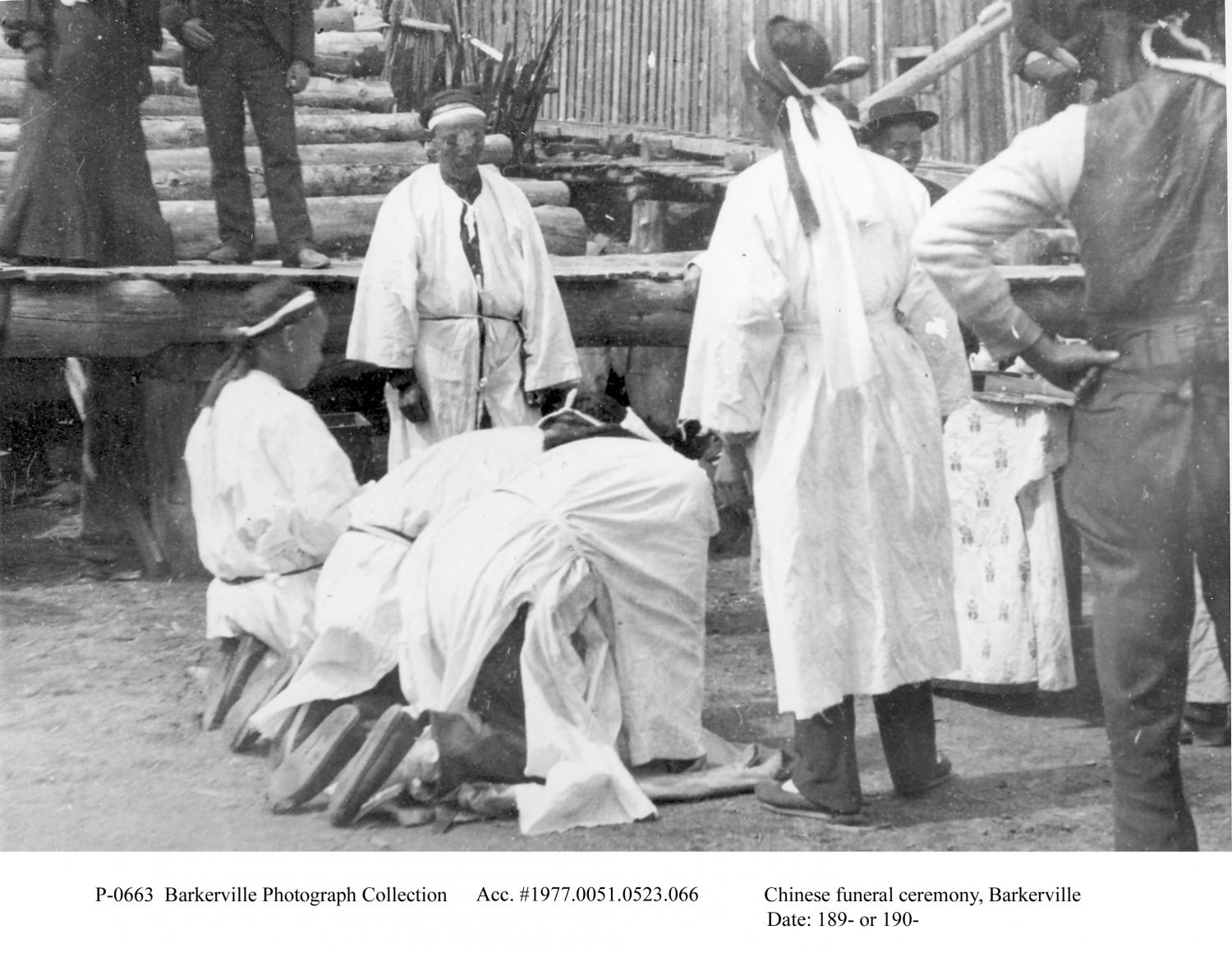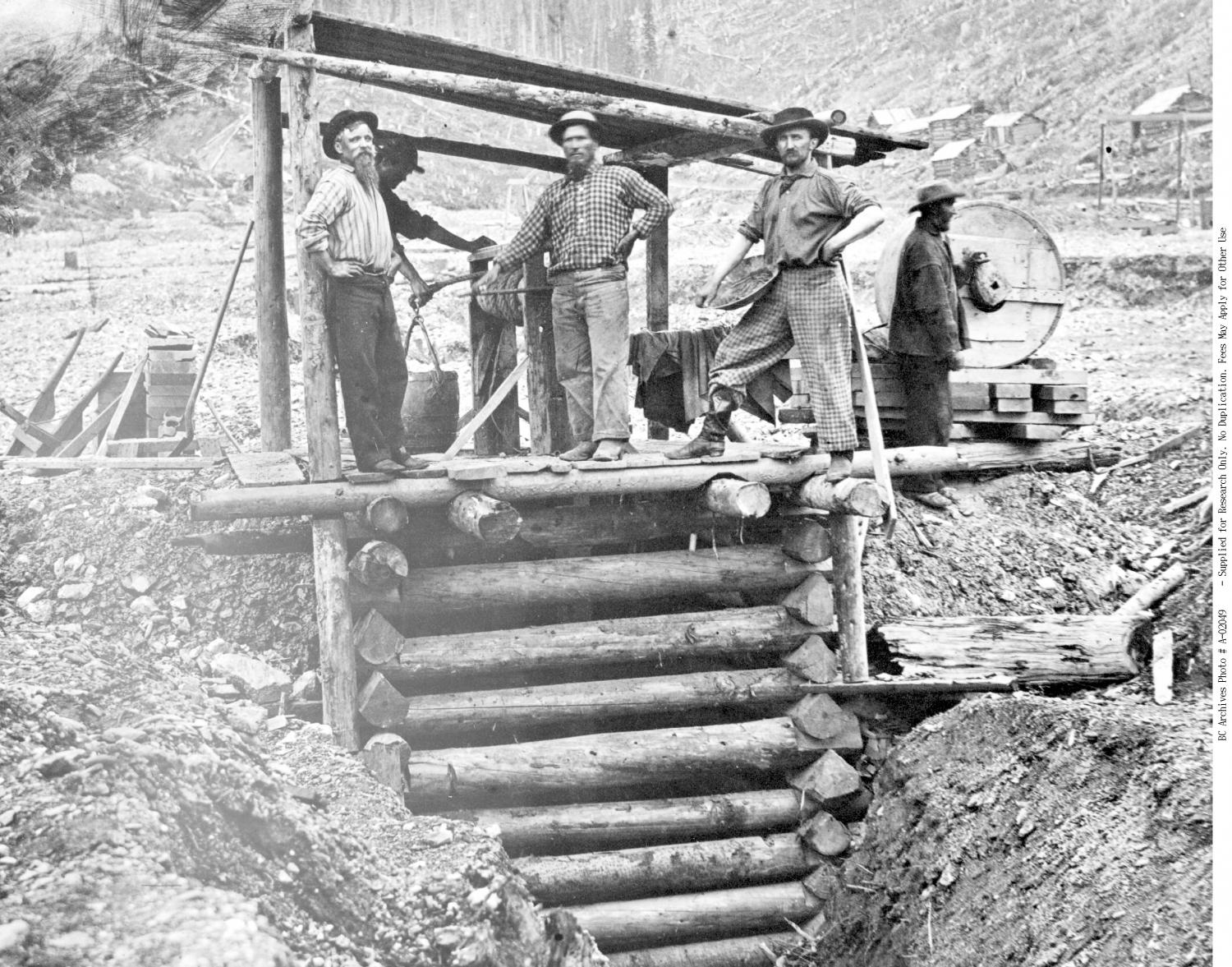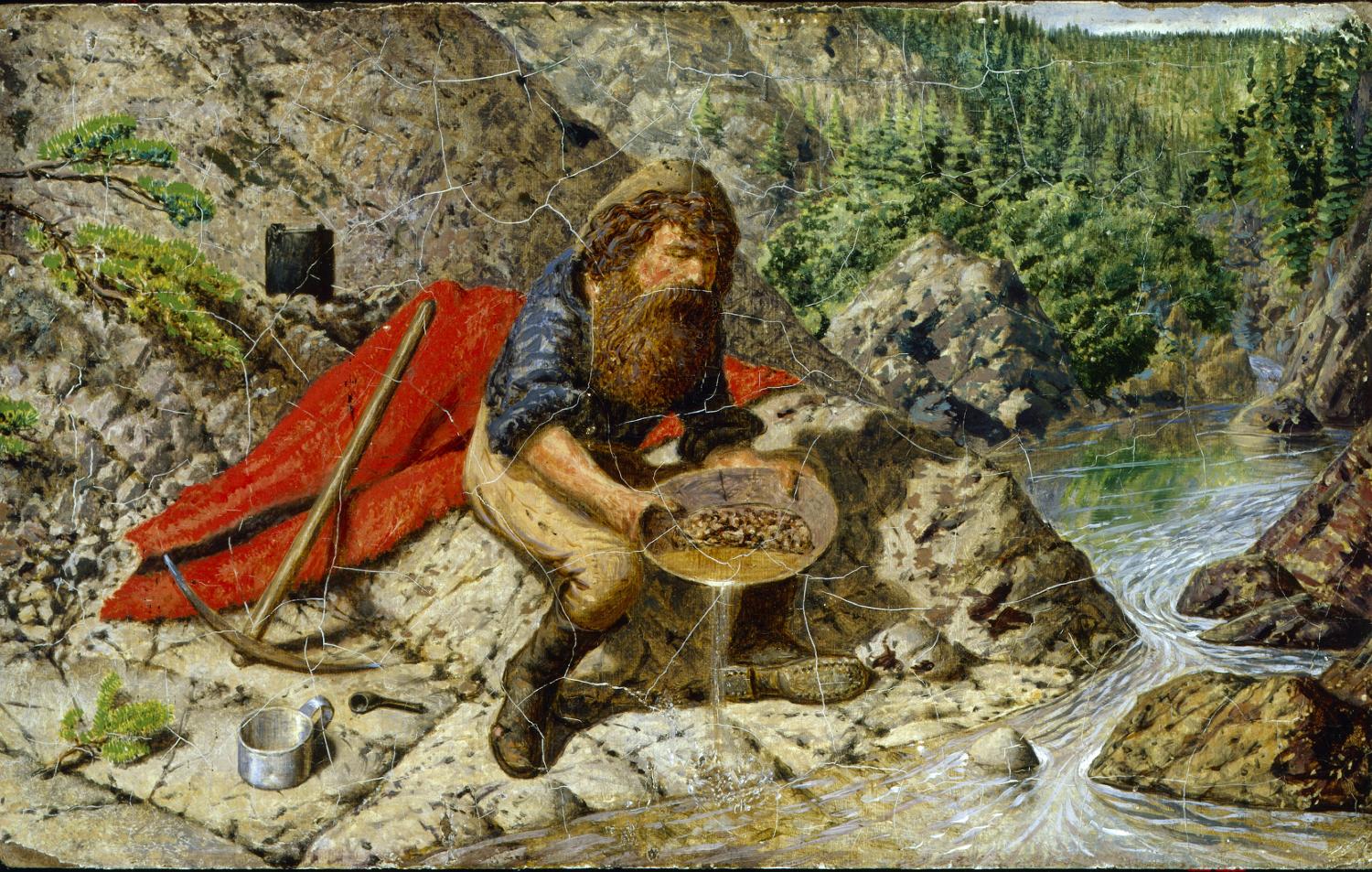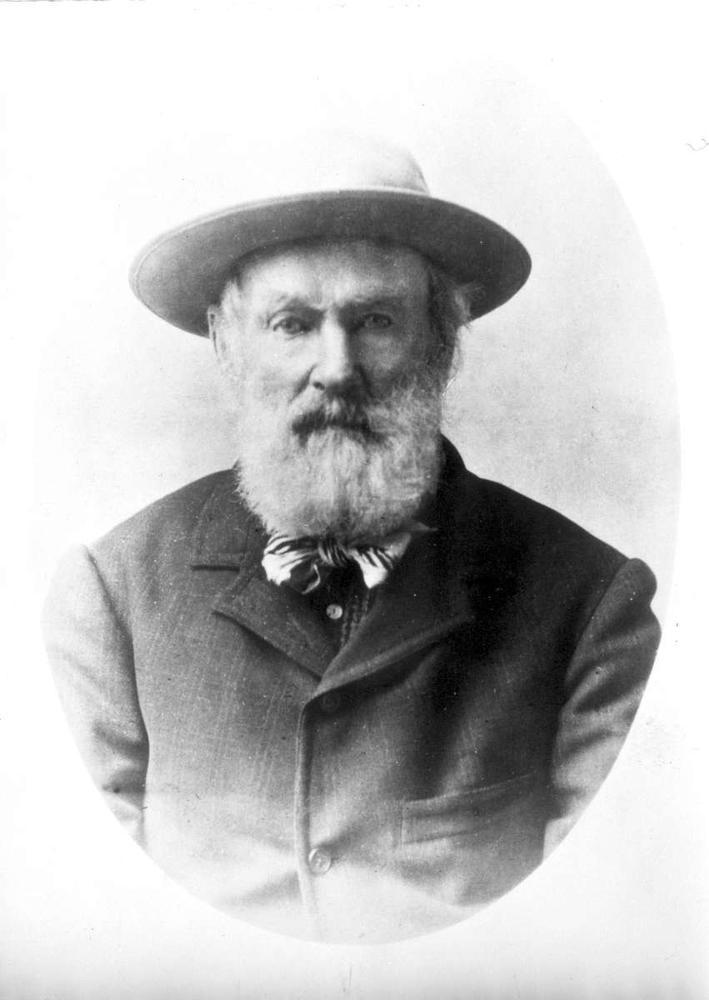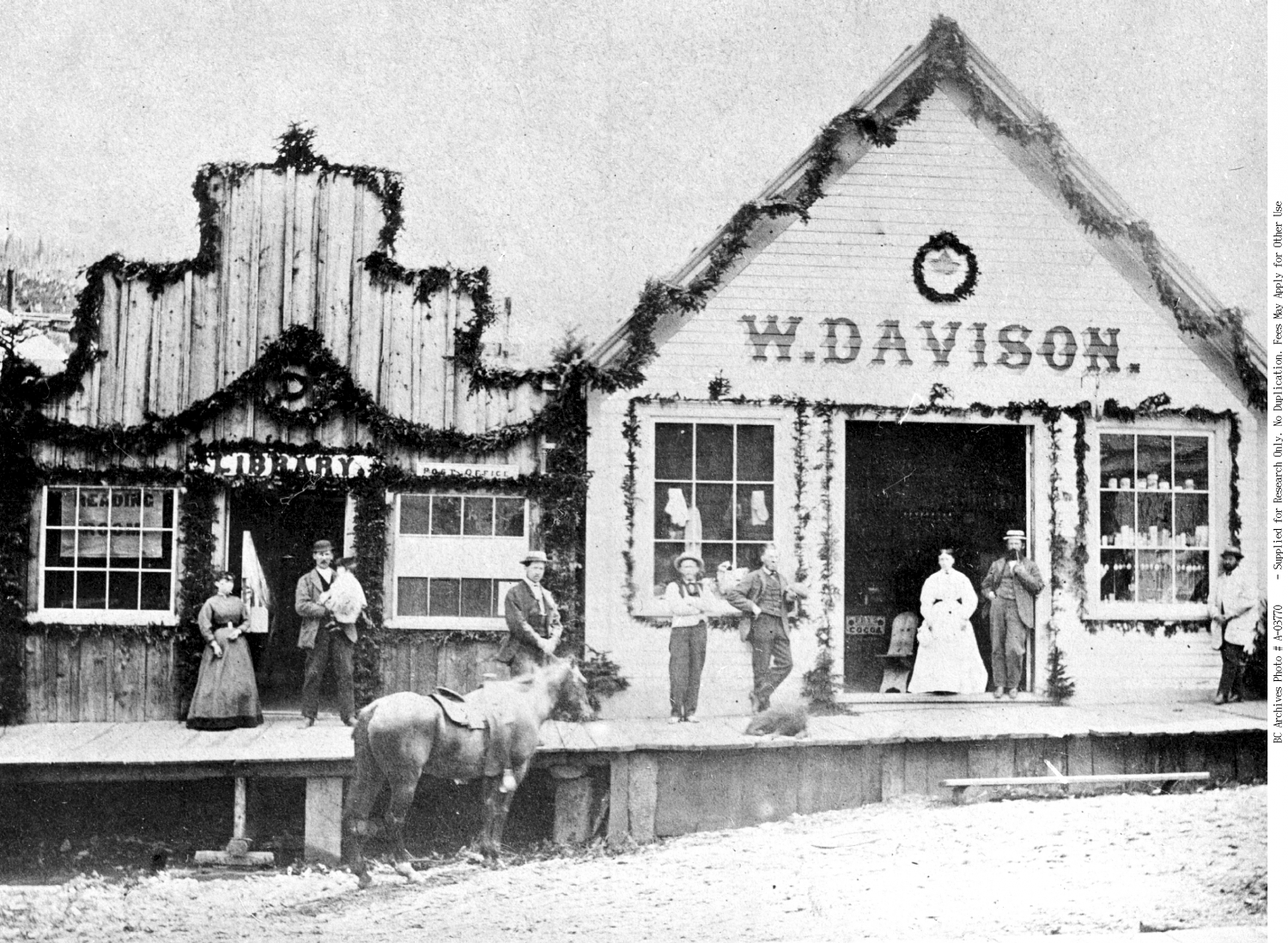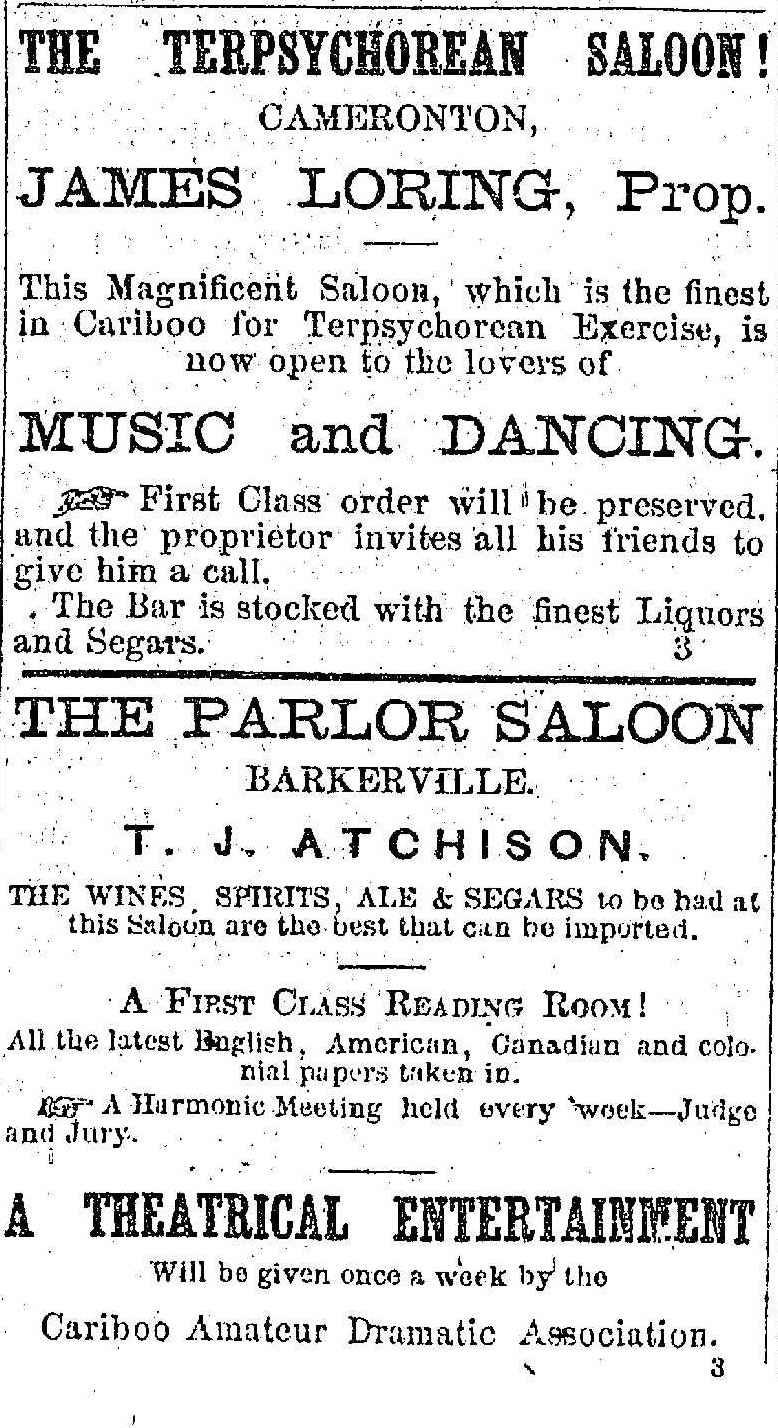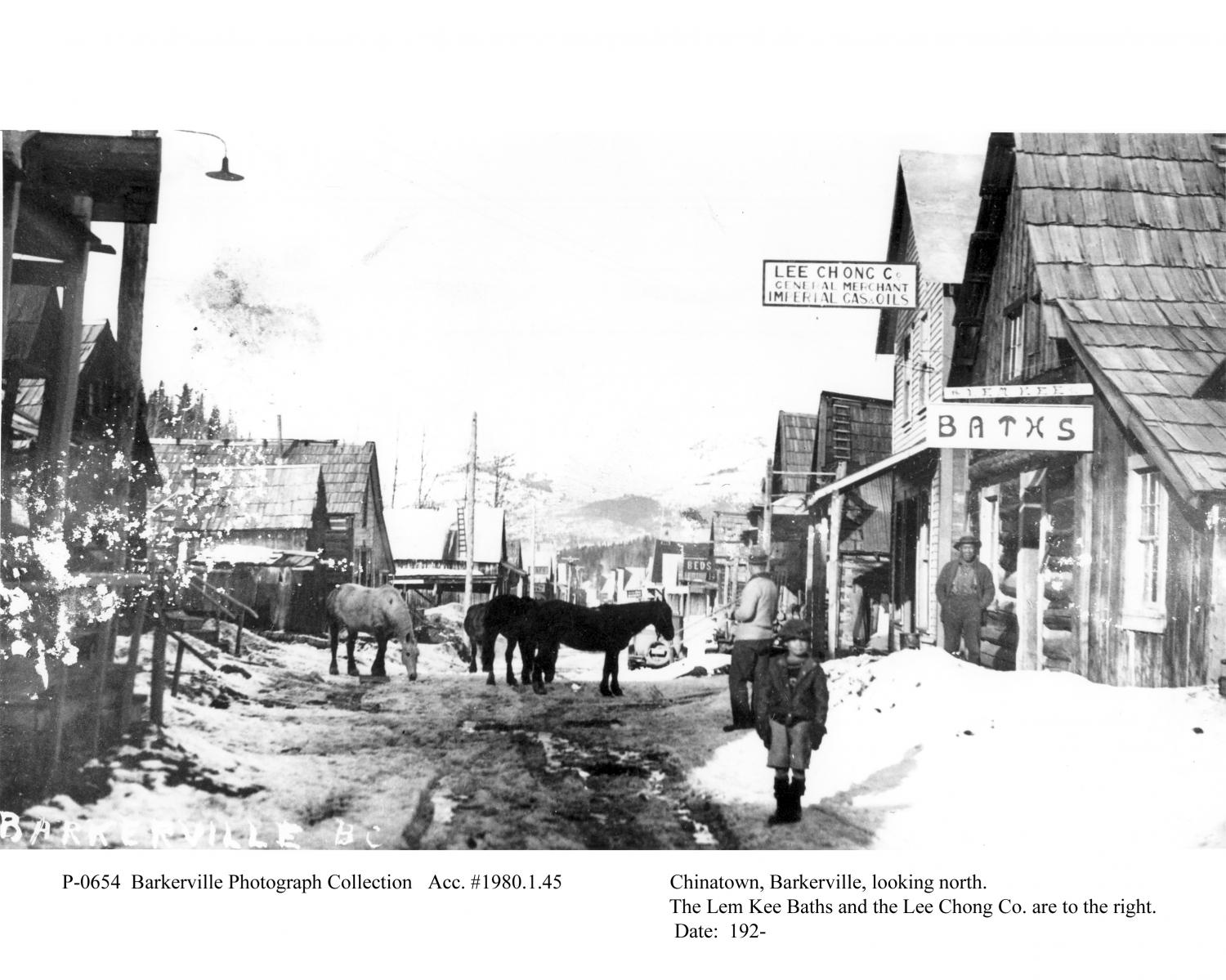The Cariboo Gold Rush
Raucous gold rush towns pop up across the Cariboo
Date: 1861
The discovery of gold near the remote Cariboo Mountains set off an intercontinental gold rush that attracted prospectors from California, Europe and even as far as Guangdong, China.
The rat race began shortly after Wilhelm “Dutch Bill” Dietz struck gold on the Horsefly River in 1861. Upon hearing the news, a hapless British miner named William “Billy” Barker decided to try his luck at nearby Williams Creek. In 1862, he too struck gold. Bustling towns full of miners then began to spring up around the Cariboo goldfields, including one named after Billy Barker himself. Full of lively saloons and hotels, many of ill repute, Barkerville quickly grew to become the largest city west of Chicago and north of San Francisco. The completion of the Cariboo Wagon Road in 1865, the province’s first public works project, eventually opened the region up to even greater settlement.
At its peak, around 8,000 people once lived in Barkerville. Over half the population was estimated to be Chinese, making it Canada’s very first Chinese community. However, discriminatory regulations only allowed Chinese prospectors to dig at previously abandoned sites leaving many struggling to reap the same rewards as their white counterparts. Still, Chinese pioneers found fortune in the local service economy, running supply stores and restaurants for the 20,000 miners who passed through Barkerville in the 1860s.
During the gold rush’s early days, local Indigenous people, including the Lhtako Dene First Nation and Southern Carrier people, also worked as guides, translators and tradespeople. Eventually, the gold disappeared, and so too did the people. By the mid-20th century, Barkerville was practically a ghost town. Today, the carefully-preserved historic site serves as a living museum, replete with actors portraying key figures from Barkerville’s past.
Sources:
1. Barkerville Rich in History. The Province/The Canadian Press, 26 June 2012, theprovince.com/news/barkerville-rich-in-history.
2. Chow, Lily. Blossom in the Gold Mountains. Caitlin Press, 2018.
3. Chow, Lily. Chasing Their Dream: Chinese Settlement in the Northwest Region of British Columbia. Caitlin Press, 2001.
4. Chow, Lily. Sojourners in the North. Caitlin Press, 1996.
5. Forsythe, Mark, and Greg Dickson. The Trail of 1858: British Columbia's Gold Rush Past. Harbour Publishing, 2008.
6. Green, Arthur, et al. “The Gold Rush.” British Columbia in a Global Context, BCcampus Open Education, 2014, opentextbc.ca/geography/chapter/5-4-case-studies/.
7. More Than Just Sojourners. Royal BC Museum and Archives, curious.royalbcmuseum.bc.ca/more-than-just-sojourners-barkervilles-chinese-legacy/.
8. Zhao, Li. Barkerville: the Chinese Gold Rush. Radio Canada International, 2 May 2019, www.rcinet.ca/en/2019/05/02/barkerville-the-chinese-gold-rush/.
